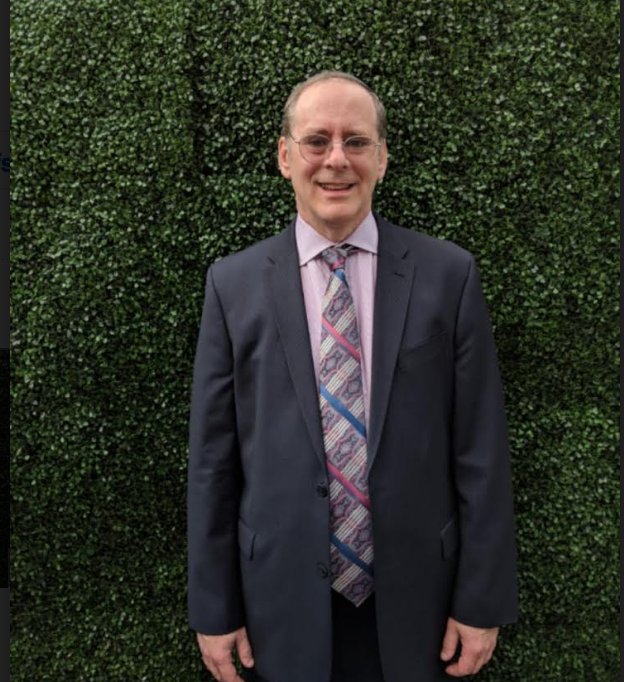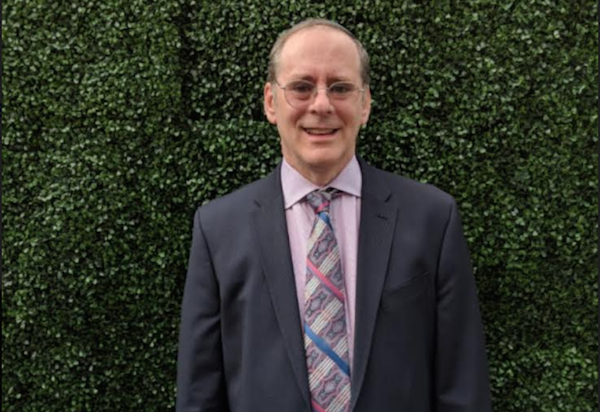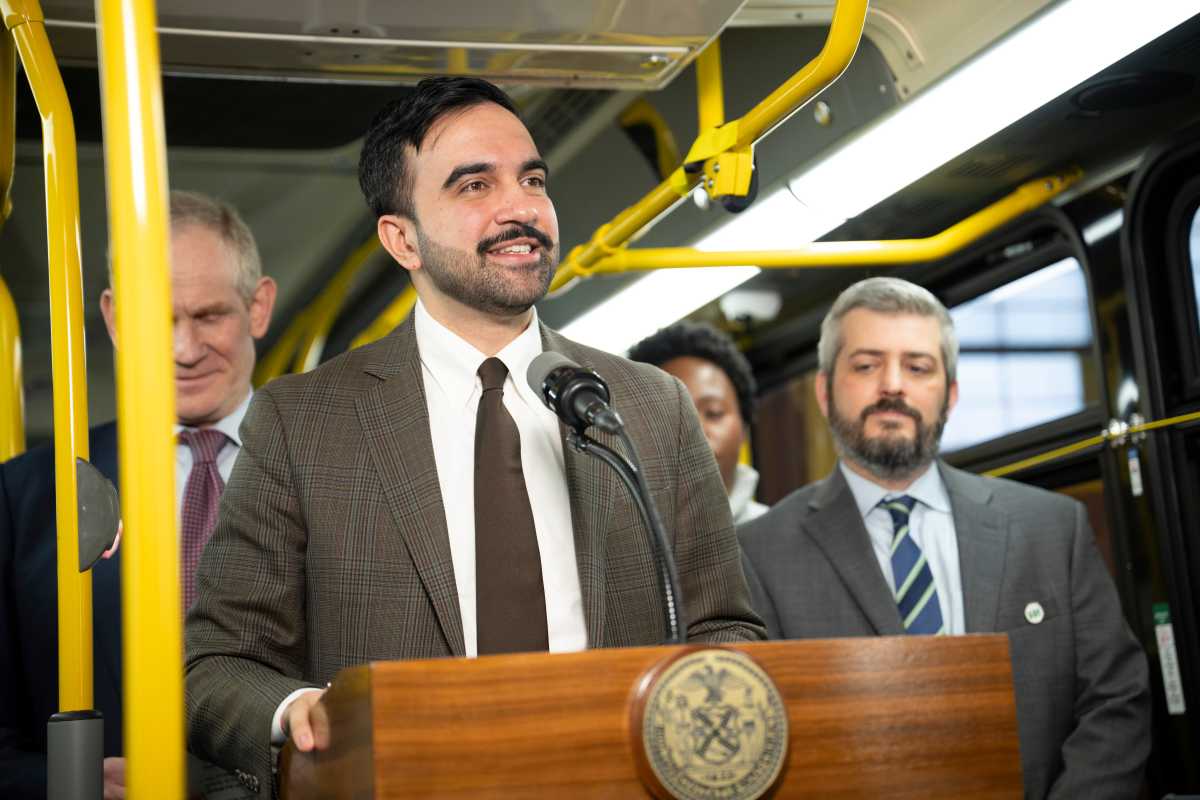It was another sticky summer day and walking into the freezing cold marble building located at 360 Adams Street was a welcome reprieve. The Kings County Supreme Court building was quiet and still on this Monday afternoon as many of the court’s staff were out, it left me with plenty of cold air for myself and a pleasant conversation with one of the borough’s homegrown judges.
Acting Supreme Court Judge Steven Mostofsky greeted me with a big smile and firm handshake, bit it was his warmth that stayed with me. First elected to Civil Court in 2012, Mostofsky was moved up to an acting Supreme Court Judge last year.
The Brooklyn native graduated from New York Law School in 1982 and got his start working under now retired Judge Leon Deutsch in family law for six years. The experience left Mostofsky with an interesting experience including the ability to write and think like a true lawyer.
“I always kid around and say that he was the first person I ever met who knew how to diagram a sentence,” said Mostofsky.
Mostofsky honed his skills drafting decisions under Deutsch, who he still counts as a close friend. The pair would go on to draft a number of articles together that were published in the New York Law Journal.
“We were very, very close and we’re still close,” added Mostofsky.

The Brooklynite later went on to work for former Supreme Court Judge Barry Hurwitz, who really gave him a broader understanding of the law and gave him an experience at litigation, commercial law and private law. The work spurred him to continue his judicial career and led him down an almost destined path.
“Someone recently told me that when I was young, I told them that I wanted to become a judge. I asked them, ‘are you serious?’ I didn’t remember that I wanted to be a lawyer when I was a teenager. And they told me, ‘No, when I was at sleep away camp, we were talking one day and I had told them that was my life goal to be a judge,” recalled Mostofsky.
Now it seems, he’s fulfilling that childhood dream and so much more. Before 2012, the Brooklynite, had his own private family practice for 17 years that also included 10 years as President of the National Council of Young Israel, a confederation of about 150 modern Orthodox synagogues representing 25,000 households across the North America.
“I enjoy working with people. I’ve always been drawn to the public sector and its’ responsibilities. It’s always been something that my parents and I have been involved with all my life, so when it came to the law, it just translated to the criminal justice system,” said Mostofsky.
Since his election, Mostofsky has been serving at the Kings County Supreme Court level in a variety of capacities including family court, civil court and most recently working in the mental hygiene part of the court.
The Mental Hygiene Court where people petition to have a person brought before a judge to determine if they need psychiatric help. These matters are adjudged based on the criteria of whether the person is a danger to themselves or to others.
Mostofsky takes his role in these cases very seriously, knowing that taking away a person’s freedom is very sensitive decision to make. He treats every case based on his own merits and pays careful attention to listen to each individual who presents themselves in his court.
“I try to make sure that I listen to the sides of the story very carefully. When it comes to dealing with written papers, I read both sides of the paper carefully. I don’t think that I just assume that anybody is necessarily correct or incorrect before I read or listen to what they have to say. It’s often difficult, and it’s very hard but when cases allow I try to make sure that patients are allowed to stay in the courtroom or to participate in the preceding. I listen to what they have to say. And I’m always very careful to listen to what the doctors have to say,” said Mostofsky.
His ability to balance his responsibilities and to treat people fairly was taught to him early in his career by Deutsch and Hurwitz who continue to influence his behavior of others in court.
“They always wanted to make sure that they were fair that they were accurate and they never wanted to give a feeling to anybody that they were on anyone’s side. I often tell people that Judge Hurwitz wouldn’t shake any lawyers hand in the courthouse because he never knew if the person sitting in the hallway was about to come into his court with a case and happened to see him shake hands with the lawyer on the other side and didn’t see him shake hands with their lawyer, ” said Mostofsky.
The work on the mental health cases has given Mostofsky a new view to mental illness and has made him a proponent of awareness.
“I noticed that this part [mental hygiene part] is the greatest equalizer in society. It doesn’t make a difference who you are, how old you are, how young you are, mental illness affects such a broad stream in the community,” said Mostofsky.
The judge has even gone so far as to bring mental illness experts to the court to help educate others on the importance of understanding its impact on society. Mostofsky has brought in the likes of Elyn Saks, a schizophrenic, who in 2007 came forward with her own battle with mental illness, writing the book The Center Cannot Hold: My Journey Through Madness.
“This part has really changed my view on mental illness. We really need many more services for the people with mental illness. It’s definitely a significant issue in our society, definitely medical and mental,” said Mostofsky.
The Judge finds that he is constantly trying to balance an equation that really has no right or wrong solution but is about guaranteeing someone’s rights to live their life on their terms.
“It’s very difficult to figure out how to balance the equation out–how to protect somebody’s rights as a person, how to protect their freedom and also protecting their rights to medical care when they need it and making sure the hospital is providing the appropriate medical care” said Mostofsky.
The work has been very rewarding for Mostofsky who wants to continue serving in the Mental Hygiene Court. A court he really didn’t know existed before and that has reinvigorated his judicial inclinations.
“But right now I’m in this part and I will probably be here again next year as well and I don’t know that I am different from anyone else. This is the way I’m doing the part, I don’t know if it’s the right way or the wrong way, but it’s the way I feel I should be doing it. I find the part fascinating, and it’s very, very interesting. It’s really life, you see how people live life everyday, it’s the extremes but it’s still life. You know people lose more days at work to mental illness, to stress and anxiety than anything else, if the statistic is still true,” said Mostofsky.
He even likes to think of himself like one part of a larger process toward solving the mysteries of the brain.
“It’s not just getting a penicillin shot and getting a bunch of pills for allergies and going home and getting better. It’s a long process and it’s not something you can just get taken care of and go home. We haven’t solved and may never solve what the brain is and that’s part of the problem. These are all diseases of the brain and we have not yet mapped out the brain. But from what I understand the field is hopeful,” said Mostofsky.
If you or someone you know is suffering from depression, anxiety or other mental health issues, feel free to call 1-888-NYC-WELL (1-888-692-9355), Press 2 Call 711 (Relay Service for Deaf/Hard of Hearing).










